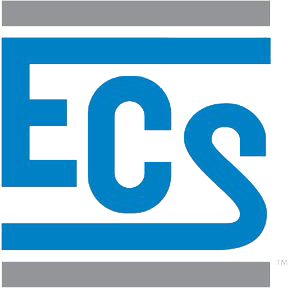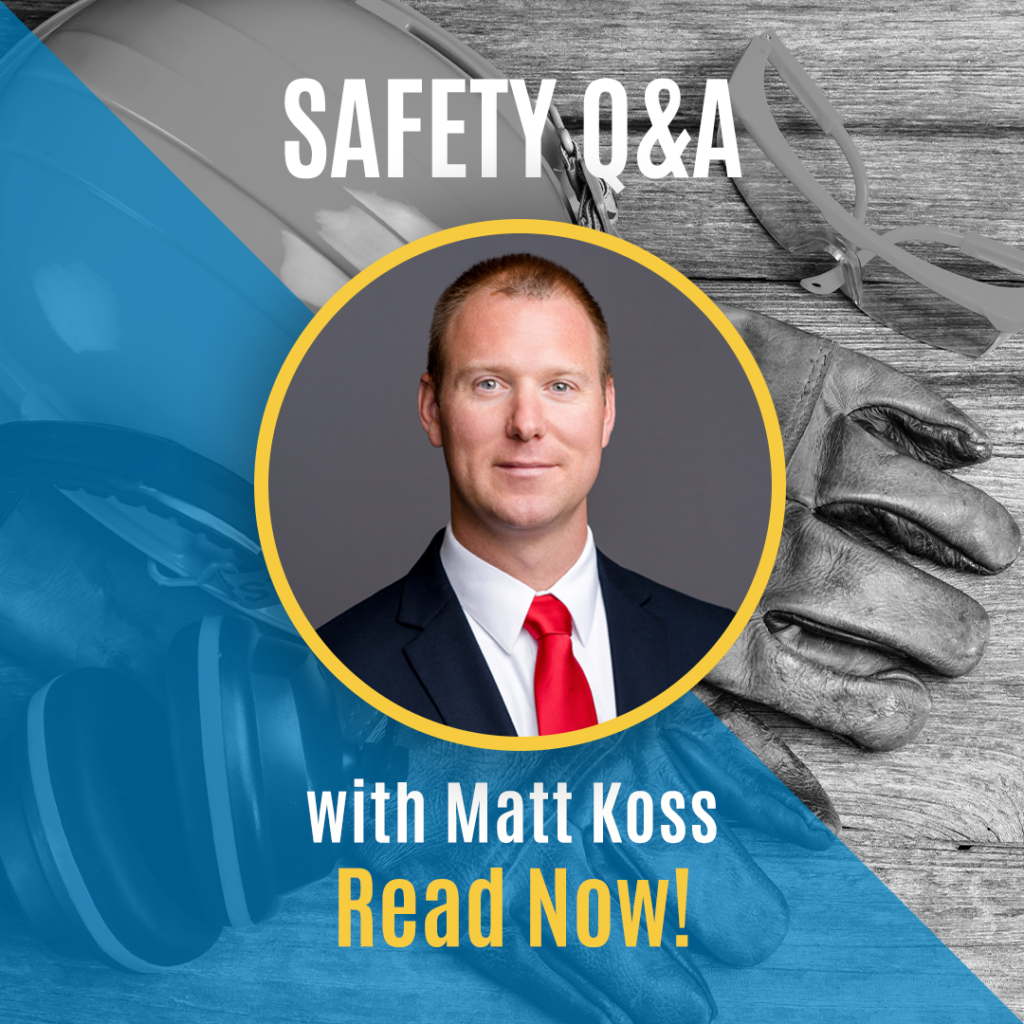At ECS, we constantly evolve and move toward the future and new capabilities in our industry. We sat with our Director of Corporate Safety, Matt Koss, from our Baltimore, MD office, where we learned more about his philosophy on safety and how ECS prioritizes safety, whether in our work or keeping our clients safe.
Q: What is your current role with ECS? Please tell us about your professional journey with the company.
A: I started in the role in August 2021. Since being hired, my job has been to promote safety to our professionals to ensure everyone gets home to their families by supporting, improving and pushing safety measures to the forefront of what we do as a firm.
Q: As the Director of Corporate Safety, what does a typical day look like for you?
A: I’m convinced that a “typical” day does not exist for someone in the safety profession. I do not have a “typical” day. My day can range from routine meetings to assessing what treatment we need to provide employees because of a motor vehicle accident. In this role, anything can happen; some days, things go as scheduled, which is nice! On other days I’m cutting meetings short to help provide emergency care plans for employees. Some days I even get to do work on non-safety tasks, like answering Q&As and diving into different aspects of the business. It can be chaotic, but that makes the role unique.
Q: How do you stay up to date with the health and safety industry and changing Occupational Safety and Health Administration (OSHA) standards?
A: I stay updated on industry changes, primarily by staying in professional organizations. I am a part of the American Society of Safety Professionals (ASSP). Our government affairs chair and different committee members keep us abreast of any changes OSHA has in the future. Whether it be changing industry trends or governmental things, the ASSP does an excellent job of keeping me updated with regulation changes.
Q: What types of injuries do you think are common in this industry?
A: Specifically for our industry, we see a lot of musculoskeletal strains and sprains from the shoulders to the back. Motor vehicle accidents would be the second cause of other injuries. However, typically most injuries involve lifting. Lifting is a part of the job; since most equipment is heavy, wear and tear occurs over time.
Q: Have you ever had the opportunity to initiate a new safety procedure? Could you tell us about it and what you learned from the process?
A: I was fortunate enough to implement an incident management system where we could measure metrics and data. We’re under development of that system now at ECS. The point of this data is to be able to divvy up information and see the trends over a period of time. With this data, we could go to leadership and discuss where most of the injuries occur, the departments with higher rates and what circumstances caused it to happen.
Q: Our workplace has a strong safety culture. How does ECS make sure to go above and beyond in this area?
A: It starts with the leadership and the people in the field. ECS promotes the culture of speaking up. Even if you are on a tight deadline out in the field, we want our employees to be transparent with how they feel about the safety of a task, worksite, or more, regardless of production, profitability, or ability rates.
Q: How do safety measures we take impact our clients/help keep our clients safe (Ex. drone)?
A: A steel inspector once told me, “If I don’t do my job correctly and allow a building to be constructed outside specification, then I put the public at risk when that building is occupied.” So, in his mind, public safety is absolutely part of his role at ECS. That statement resonated with me. If our job isn’t done correctly, it affects us as a company and the public. At the same time, we’re evaluating those options if we can look at our internal operations to improve and eliminate hazards by using technology such as drones, artificial intelligence services, or other tools.
Q: Can you provide an example of a challenging project we worked on and how safety was prioritized on the job?
A: We have a lot of national clients now with bigger work plans. These companies are airtight in vetting contractor prospects for their projects. With certain contracts in place, you won’t work with them if you don’t meet their standard that exceeds the minimum requirements. As the organization continues to grow, these challenging requirements will become the norm.
Q: Do you feel all workplace injuries are preventable? Please explain.
A: I know we should say yes, but I have a different thought process. It is a desirable mindset; however, no industry or company with significant resources has eliminated all incidents. I would love for that to be true. However, I think the potential consequences of an incident and injury-free mindset in our realm of work would be a disservice to the company, our clients and employees. It’s a matter of risk, practicality and realism that needs to be considered. This is a more practical approach that accepts that human error is normal and organizational learning is paramount.
Q: What does a safe job site look like to you?
A: A safe job site is organized, with signs of traffic flow, minimizing major exposure to potential risk factors. Minimizing fall exposures and high-hazard areas is important, but being up to date with training and what to do in situations is also important.
Q: How can the public do its part in keeping our employees safe as they come across construction sites or doing road work?
A: Slow down and be alert near work sites. The more alert you are, the safer you are, which also benefits our staff. This goes without saying, but there’s more to the story than telling people to slow down and pay attention. In my opinion, this is a deep-rooted issue that lies in the societal influences of construction and how people are motivated.
Fun facts about Matt:
Q: What do you like to do when you are not working?
A: Anything related to sports, you can count me in. Whether that’s watching sports or playing, I grew up in western Pennsylvania and am a huge Pittsburgh Steelers fan. Besides that, I love to travel with my family, go camping, visit a beach, and see new things with them.
Q: What is a fun fact about you that many people may not know?
A: Although I come off as relaxed a lot of the time, contrary to belief, I worry about anything and everything. The subject won’t matter; my mind will be racing 1,000 miles an hour daily.
Hear more from Matt Koss on his podcast episode here.
Additional Resources:

